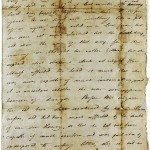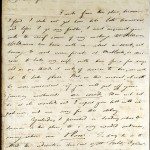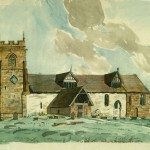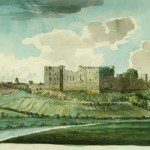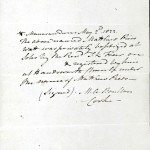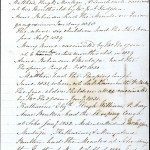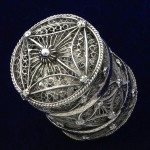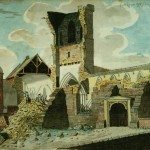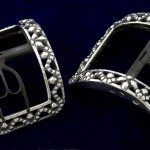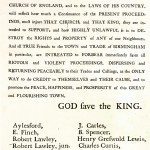Browse Times
1765-1775
1765
William Small moved to Birmingham from Virginia. James Watt invented a separate condenser which improved the efficiency of Newcomen’s engine by providing a separate chamber for condensing steam. John Taylor, button maker and Sampson Lloyd II, ironmaster set up Birmingham’s first bank.
1766
Erasmus Darwin met Richard Lovell Edgeworth and Jean-Jacques Rousseau. Three canals were started in the West Midlands: The Birmingham to Wednesbury Canal, the Trent and Mersey Canal and the Staffordshire to Worcestershire Canal. Thomas and George Cranage at Coalbrookdale took out a patent for converting pig iron into wrought iron.
1767
James Watt visited Erasmus Darwin. James Keir settled in West Bromwich. Publication of Joseph Priestley’s History of Electricity. Publication of Burdett’s Map of Derbyshire, the first properly surveyed English county map.
1768
The import of foreign silk was prohibited. This encouraged the development of the silk industry in Derby, Leek and Macclesfield and ribbon weaving in Coventry, Bedworth and Nuneaton. Richard Arkwright developed the water frame to spin cotton.
1769
James Watt patented the single-action steam engine in Scotland.
1770
Thomas Day settled in Lichfield and Richard Lovell Edgeworth visited him there.
1771
Richard Lovell Edgeworth and Thomas Day visited Jean-Jacques Rousseau in France. Jesson and Wright in Wednesbury took out a patent for “potting and stamping iron” which was adopted by other Black Country firms. Richard Arkwright’s water frame was first used in Nottingham. A water-powered version was also created at Cromford in Derbyshire. Josiah Wedgwood created a new factory at Etruria to manufacture his pottery.
1772
The Staffordshire and Worcestershire Canal and the Birmingham to Wednesbury Canal were opened to traffic.
Supported by Lord Shelburne until 1781, Joseph Priestley had the leisure to develop his scientific experiments.
1773
James Keir established a chemical works at Tipton</a, supplying alkali, potash, soda soap and red lead to the glass industry.
Thomas Day's poem The Dying Negro published. Establishment of the Birmingham Assay Office.
1774
John Wilkinson developed a method of boring cylinders with mechanical precision.
Encouraged by Matthew Boulton, James Watt came to Birmingham from Scotland. John Wilkinson’s invention enabled him to produce the high quality cylinders he needed for his steam engines.
1775
The name Lunar Society was first used. Deaths of William Small, John Taylor, button maker and John Baskerville, printer. William Withering moved to Birmingham taking over William Small’s practice and his place in the Lunar Society. Start of Matthew Boulton and James Watt partnership. Baddeley introduced transfer printing into the pottery industry. The earliest recorded building society was Ketley’s in Birmingham in 1775. It was followed by the establishment of others in the West Midlands. Start of the American War of Independence
Articles in this time period
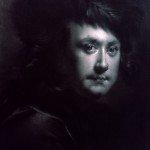
Joseph Wright of Derby: Art, the Enlightenment and Industrial Revolution
Image: Joseph Wright of Derby (1734-1797), Self Portrait in a Black Feathered Hat(c1767-1770). Oil on canvas. Summary Joseph Wright… read more »
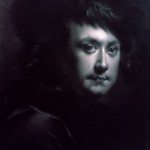
Joseph Wright’s Journey to Italy
Image: Joseph Wright of Derby (1734- 1797), Self Portrait (c1767-70). Charcoal on paper. Image from: Derby Museum… read more »
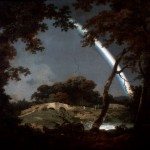
Landscape with a Rainbow
Joseph Wright of Derby (1734-1797). Image from: Derby Museum & Art Gallery
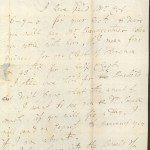
Letter from Erasmus Darwin to Matthew Boulton, 1767/07/29
Darwin writes to Boulton of various financial matters and a recent visit to Derbyshire. —————————————- Lichfd Dear… read more »
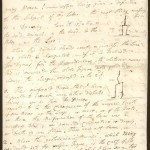
Letter from Erasmus Darwin to Matthew Boulton, 1769/06/09
Darwin writes to Boulton about Boulton’s infant daughter, Anne, who suffered from a condition, possibly a dislocation… read more »
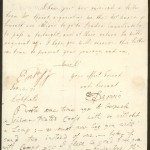
Letter from Erasmus Darwin to Matthew Boulton, 1771/01/04
Darwin, Boulton and Wedgwood were due to dine with Mr Anson of Shugborough Hall and Mr Stuart,… read more »
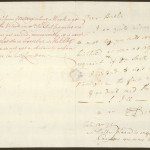
Letter from Erasmus Darwin to Matthew Boulton, 1771/02/12
Darwin’s query about an order he placed with Boulton. —————————————- 12 Feb 1771 Dear Boulton I am… read more »
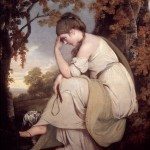
Maria and her dog Silvio (from Sterne’s Sentimental Journey)
Joseph Wright of Derby (1734-1797). Oil on Canvas. Image from: Derby Museum & Art Gallery
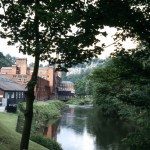
Masson Mill and the River Derwent, Matlock Bath near Cromford, Derbyshire
The picture shows the rural landscape in which many 18th century factories were located. The Derwent Valley… read more »
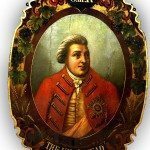
Matthew Boulton and Birmingham Silverware in the late 18th and early 19th centuries
Image: The painted sign for the King’s Head Inn, New Street, Birmingham showing the Head of George III.… read more »
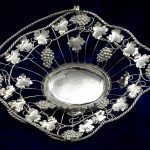
Matthew Boulton and Silver Making
Image: Sweetmeat Basket, Boulton & Fothergill, 1774 This basket was possibly designed by Robert Adam. The body is… read more »
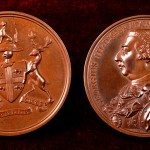
Matthew Boulton’s Medals and Coins on Russian Subjects
Image: Medallion of the Hudson’s Bay Company. 1820. Designed by Conrad Heinrich Kuchler. An example of the high… read more »
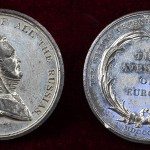
Medals and Coins of Alexander I
Image: Medallion of Alexander I, Emperor of all the Russias. 1812. Image from: Birmingham Assay Office (256) The coronation… read more »
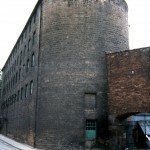
Mill and Warehouse Building, Cromford, Derbyshire
This five-storey building was built in 1785 to 1790. The four upper floors contained machinery for spinning.… read more »
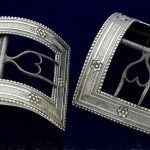
Pair of shoe buckles
These silver buckles have an embossed design and are fitted with steel latchets or fasteners.
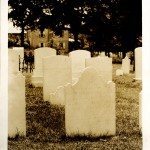
Photograph of gravestone of Dr Priestley in Cemetery of Northumberland, Pennsylvania
Image from: Joseph Priestley Collection by Samuel Timmins, Birmingham City Archives.
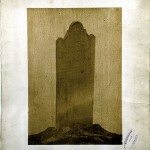

Photograph of Joseph Priestley’s gravestone
Image from: Joseph Priestley Collection by Samuel Timmins, Birmingham City Archives.
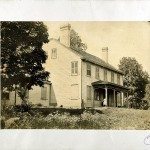

Photograph of Joseph Priestley’s house in the United States of America
Image from: Joseph Priestley Collection by Samuel Timmins, Birmingham City Archives.
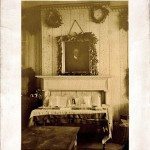

Photograph of portrait of Joseph Priestley
Image from: Joseph Priestley Collection by Samuel Timmins, Birmingham City Archives.
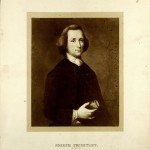

Photograph of portrait of Joseph Priestley at the age of 30
Image from: Joseph Priestley Collection by Samuel Timmins, Birmingham City Archives.
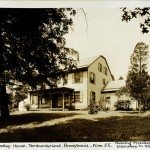


Photograph of Priestley House, Northumberland, Pennsylvania, from South-East, showing Priestley’s Laboratory
Image from: Joseph Priestley Collection by Samuel Timmins, Birmingham City Archives.
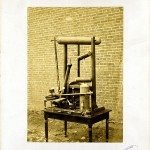

Photograph of scientific instruments
Image from: Joseph Priestley Collection by Samuel Timmins, Birmingham City Archives.
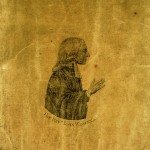

Priestley and John Wesley
Image: Portrait of John Wesley struck off by electricity by Joseph Priestley Image from: Birmingham City Archives, Priestley… read more »
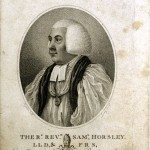

Priestley and the Church of England
Image: Bishop Samuel Horsley, one of Priestley’s main Anglican opponents. Image from: Birmingham City Archives, Priestley Collection by Samuel… read more »



Priestley in Northumberland, Pennsylvania
Image: Joseph Priestley House, Northumberland, Pennsylvania, from the south-east showing Priestley’s laboratory Image from: Birmingham City Archives, Priestley Collection… read more »
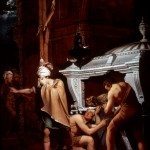

Priestley: Body, Matter and Death
Miravan Breaking Open the Tomb of his Ancestors (1772). Joseph Wright of Derby(1734-1797), Oil on canvas. Derby Museum &… read more »
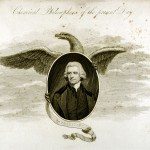

Priestley’s Arrival in America
Image: Chemical Philosophers of the Present Day, Dr Priestley. The apotheosis of Joseph Priestley. The scientist ascends into… read more »



Priestley’s Death and long-term Reputation
Image: Gravestone of Dr Priestley in the Cemetery of Northumberland, Pennsylvania. “To the memory of the Rev Dr… read more »
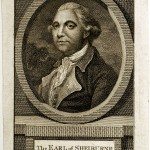

Priestley’s Early Career
Image: The Earl of Shelburne, Priestley’s patron from 1772 to 1780 Image from: Birmingham City Archives, Priestley Collection by… read more »
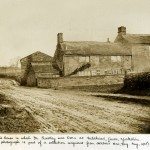

Priestley’s Origins
Image: Birthplace of Joseph Priestley, Fieldhead, Leeds, Yorkshire. Image from: Birmingham City Archives, Priestley Collection by Samuel Timmins Joseph… read more »
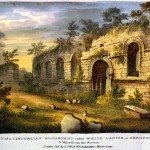

Remains of a Cistercian monastery called White Ladies in Shropshire
From Picturesque Views of the Severn, 1824 by Thomas Harral
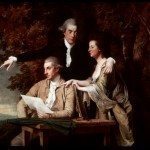

Rev. d’Ewes Coke and Family
Joseph Wright of Derby (1734-1797). Oil on canvas. Image from: Derby Museum & Art Gallery
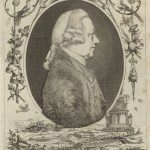

Richard Greene and 18th Century Museums
Image: Portrait of Richard Greene. Stebbing Shaw, History and Antiquities of Staffordshire, Vol.1 (London, 1798). Image from: Local Studies and… read more »
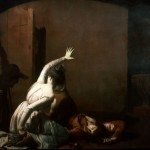

Romeo and Juliet, the Tomb Scene
Joseph Wright of Derby (1734-1797). Oil on canvas. Image from: Derby Museum & Art Gallery
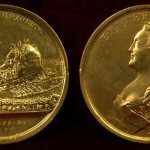

Russian Visitors to the English Midlands
Text: Olga Baird Image: Russian Medallion to commemorate the erection of Peter the Great’s statue in 1773. Peter the… read more »
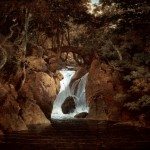

Rydal Waterfall
Virgil was a famous Roman poet who died in 19 BC. His tomb was located in the… read more »
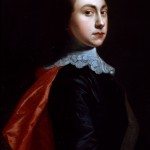

Self Portrait at the age of 20 by Joseph Wright
Joseph Wright of Derby (1734-1797). Oil on canvas. Image from: Derby Museum & Art Gallery
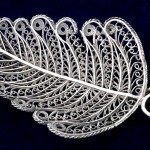

Silversmiths and Silverware in late 18th and early 19th century Birmingham
Image: Silver caddy spoon, probably by Samuel Pemberton, c.1800. The delicate design is created by a filigree technique… read more »
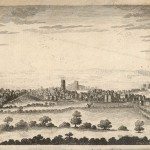

Sir John Floyer and Lichfield
Image: South-west view of Lichfield, an eighteenth century print engraved by J Ryland and published in John Jackson, History… read more »
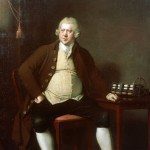

Sir Richard Arkwright: Industrialist
The art of portraiture was changing during the Industrial Revolution. The expansion of commerce and industry in… read more »



